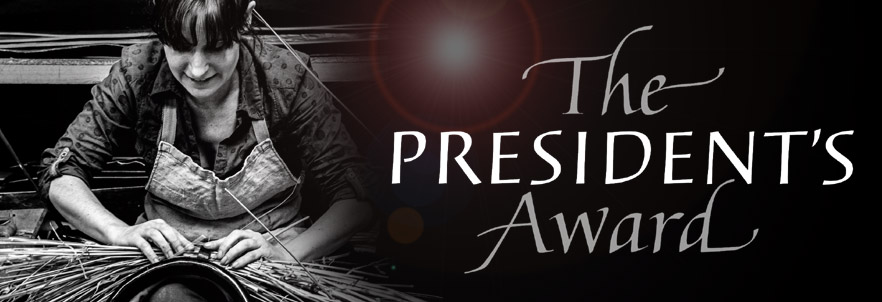
The President’s Award for Endangered Crafts was established in 2020 by Heritage Crafts President The former Prince of Wales. Each year the President’s Award presents £3,000 to a heritage craftsperson who will use the funding to ensure that craft skills are passed on to the future.
The Heritage Crafts published the latest edition of its groundbreaking Red List of Endangered Crafts in 2023, which revealed that there are 146 endangered crafts in the UK. Crafts deemed critically endangered range from bell founding and damask weaving to orrery making and silver spinning. Other endangered crafts include a number of musical instrument making crafts, including brass, woodwind and percussion instruments, harps and Northumbrian pipes.
Applicants for the President’s Award are invited to submit proposals to help secure the survival of their craft, which must be listed as ‘endangered’ or ‘critically endangered’ on the 2023 edition of the Red List of Endangered Crafts. Applicants must explain how they will use the £3,000 award to help secure the survival of their craft.
CLICK HERE TO APPLY (deadline 24 May 2024)
The Award judges are renowned advocates of craft skills:
- Jay Blades MBE, Co-Chair of Heritage Crafts;
- Kate Hobhouse, Chair of Fortnum and Mason;
- Patricia Lovett MBE, former Chair of Heritage Crafts;
- Simon Sadinsky, Executive Director of The Prince’s Foundation; and
- Lucy Barlow, straw hat maker and 2023 President’s Award winner.





The President’s Award will be presented at a special Winners’ Reception in November 2024.
 Deadline: 24 May 2023, 5pm
Deadline: 24 May 2023, 5pm
Heritage Crafts and the Queen Elizabeth Scholarship Trust (QEST) are again running an Environmental Sustainability Award in 2024, this year with two £1,000 prizes, open to any craftsperson or micro-business, working with traditional craft skills or materials, who has improved their environmental sustainability within the last 12 months.
This prestigious award is divided into two prizes, each honouring a distinct aspect of environmental stewardship. One of the prizes will be given to a craftsperson or microbusiness demonstrating an innovative approach to environmental sustainability, rarely before seen, that can act as inspiration for others to explore new ways of thinking and working. The recipient of this prize will have pioneered a truly innovative solution, technique, or process that challenges conventional wisdom and inspires others to explore new horizons in sustainable craftsmanship.
The other prize recognises the achievements of a craftsperson or microbusiness that has made substantial and measurable progress in transforming the environmental impact of their craft business through a series of incremental changes and improvements. The recipient of this prize will have demonstrated a steadfast commitment to sustainability by implementing practical initiatives that reduce waste, conserve resources, and mitigate environmental harm over time.
QEST and Heritage Crafts believe we can (and must) all play a role in building a sustainable future – big ideas can have wide reach, and small changes by many can amount to big changes for all. Both prizes aim to celebrate and reward excellence in environmental sustainability within the crafts sector, acknowledging the diverse approaches and contributions of craftspersons and microbusinesses towards a more sustainable future. The winners of this award serve as role models and catalysts for positive change, inspiring others in the crafts community to embrace sustainability as a core value and guiding principle in their practice.
Judges will include renowned environmental craft advocate Katie Treggiden, author of Wasted: When Trash Becomes Treasure (Ludion, 2020) and podcast Circular with Katie Treggiden, as well as Kerryn Harper-Cuss, independent editor, brand consultant and QEST ambassador, with extensive experience in the interior design sector.
Anyone (including the craftsperson or business themselves), can nominate a craftsperson or microbusiness working with traditional craft skills or materials, for the Heritage Crafts/QEST Environmental Sustainability Award. The winners will be invited to attend a high-profile Winners’ Reception in November 2024, where the results will be announced and the two £1,000 prizes awarded.
Deborah Pocock LVO, CEO of QEST said:
“QEST believes in the potential of craft to contribute to a better, more sustainable environmental future, and we know that there are many talented and pioneering makers leading the way. Through this new award, we are looking forward to seeing how their ideas and approaches might impact their craft sector, and inspire others to make a change.”
Daniel Carpenter, Executive Director of Heritage Crafts said:
“In the 259 crafts (and counting) that Heritage Crafts represents, we know that there is a huge body of knowledge that will be vital in helping both current and future generations tackle the environmental challenges ahead. We are delighted to be partnering with QEST to celebrate our shared sustainability pioneers and role models.”
Nominations are now open and close on Friday 24 May 2024 at 5pm. To apply, visit awards.heritagecrafts.org.uk.
 Heritage Crafts has received a National Lottery Heritage Fund grant of £158k to capitalise on the heightened interest in traditional craftsmanship in the UK. Made possible by money raised by National Lottery players, the two-year project will increase the charity’s capacity to support craft skills as a vital part of the UK’s heritage.
Heritage Crafts has received a National Lottery Heritage Fund grant of £158k to capitalise on the heightened interest in traditional craftsmanship in the UK. Made possible by money raised by National Lottery players, the two-year project will increase the charity’s capacity to support craft skills as a vital part of the UK’s heritage.
With the support of the National Lottery Heritage Fund, Heritage Crafts will invest in additional staff and freelance consultants to help it achieve long-term sustainability. This will include broadening and diversifying its funding and supporter base, mobilising a network of volunteers all around the country, and ensuring that equity and diversity remain at its core.
Heritage Crafts is the national charity for traditional heritage crafts in the UK. Working in partnership with government and key agencies, it provides a focus for craftspeople, groups, societies and guilds, as well as individuals who care about the loss of traditional crafts skills, and works towards a healthy and sustainable framework for the future.
This news comes on the back of the announcement from the Department of Culture, Media and Sport that the UK is to ratify the 2003 UNESCO Convention on the Safeguarding of Intangible Cultural Heritage (ICH), something that – as a UNESCO-accredited NGO for ICH – Heritage Crafts has long advocated for.
The charity has also increased its direct support to practicing and aspiring heritage craftspeople in recent years, with 66 small grants awarded since 2019 through its Endangered Crafts Fund, and 22 training bursaries for new entrants and early-career practitioners distributed since 2021, with a further 24 on offer in 2024.
This project will help ensure that the organisation builds on these successes.
Daniel Carpenter, Executive Director of Heritage Crafts, said:
“We are thrilled to have received this support thanks to National Lottery players, which will allow us to make the most of the opportunities afforded by the UK’s growing appreciation for craft skills, and increase our support for under-represented and marginalised communities in the sector. With UK ratification of the UNESCO Convention, this is a key moment for the promotion of heritage crafts, and we are keen to make the most of it… for everyone.”
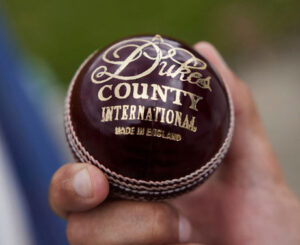 As Co-Chair of Heritage Crafts, the UK charity set up to support traditional crafts skills, Jay Blades MBE is leading a new initiative to bring cricket ball making back to the UK.
As Co-Chair of Heritage Crafts, the UK charity set up to support traditional crafts skills, Jay Blades MBE is leading a new initiative to bring cricket ball making back to the UK.
Cricket ball making has been listed as extinct in the UK since the first edition of the Red List of Endangered Crafts was published in 2017. While some of the processes that go into make a cricket ball are done in the UK, the highly-skilled hand-stitching is usually outsourced to other countries.
Heritage Crafts Co-Chair Jay Blades MBE said:
“We are putting a national shout out to trainers and wannabe cricket ball makers. Get in touch! We need to find retired makers, or anyone with knowledge of how to make cricket balls, to contact Heritage Crafts so we can capture those skills and hopefully pass them on to a new generation of cricket ball makers in this country. Come on Britain! Let’s get the ball rolling and bring cricket ball making back!”
The aim is to find serious trainees, perhaps with saddlery skills or a background in leather work, who want to learn how to make cricket balls. Heritage Crafts and partners, including Duke’s Cricket, are raising funds to support the training, so we can bring the craft of making top-level cricket balls back to the UK, the birthplace of cricket.
To register your interest as a potential trainer or trainee, please contact Heritage Crafts at info@heritagecrafts.org.uk.
Historic decision lauded by Heritage Crafts, the UK charity for traditional crafts, which has been a UNESCO-accredited NGO for Intangible Cultural Heritage since 2017 and been advocating for UK ratification with others since 2010.
The Department for Culture, Media and Sport (DCMS) has today announced that United Kingdom is set to ratify the 2003 UNESCO Convention on the Safeguarding of Intangible Cultural Heritage, bringing it in line with the 182 other UNESCO Member States already ratified, and opening the way to greater international cooperation on the importance of the UK’s knowledge, skills and practices as part of our living heritage.
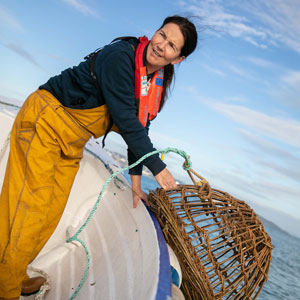 Adoption of the Convention will open the way to increased monitoring of the UK’s intangible cultural heritage, including practices that have come here through migrant and diaspora communities, and better safeguarding of the most at-risk examples.
Adoption of the Convention will open the way to increased monitoring of the UK’s intangible cultural heritage, including practices that have come here through migrant and diaspora communities, and better safeguarding of the most at-risk examples.
Traditional craftsmanship is one of five domains of intangible cultural heritage recognised by UNESCO, alongside oral traditions and expressions, performing arts, social practices, rituals and festive events, knowledge and practices concerning nature and the universe. Heritage Crafts has already been monitoring and safeguarding the traditional craftsmanship domain since 2017 through its influential Red List of Endangered Crafts, the first research report to rank craft skills by their likelihood of survival in the UK and its Endangered Crafts Fund, which has provided 66 grants to improve the chance of survival of the most at-risk examples.
The Government has today launched a public consultation to “inform UK’s approach to creating a new register for traditions valued by communities up and down the country”, through which “[c]ommunities across the UK will be able to nominate their most cherished local traditions to be included in a new register of cultural heritage in the UK.” The consultation runs until the end of February.
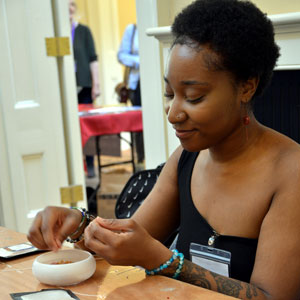 There will be no single government or organisation responsible for implementation across the UK, so open dialogue and discussion to ensure a diversity of voices and views will be fundamental. This is in line with the underlying principles of the Convention that implementation is community based, inclusive and respectful, open and engaged.
There will be no single government or organisation responsible for implementation across the UK, so open dialogue and discussion to ensure a diversity of voices and views will be fundamental. This is in line with the underlying principles of the Convention that implementation is community based, inclusive and respectful, open and engaged.
The process for adding items to the Inventory will be to call for items to be submitted by communities, groups or individuals. Subject to a light-touch approvals process, the new entries will be announced on a regular basis – probably quarterly. DCMS will look to engage and provide support for those who wish to submit items.
Lord Parkinson of Whitley Bay, Arts and Heritage Minister, said:
“The UK is rich in traditions which are passed down from generation to generation. These crafts, customs, and celebrations have helped to shape our communities and bring people together, who continue to shape them in turn. By ratifying this Convention, we will be able to celebrate treasured traditions from every corner of the UK, support the people who practise them, and ensure they are passed down for future generations to enjoy.”
Daniel Carpenter, Executive Director of Heritage Crafts, said:
“Following 14 years of advocating for the ratification of the 2003 Convention, this is a historic day for the United Kingdom. Ratification will help ensure that knowledge, skills and practices integral to the UK’s ever-evolving national identity will be properly valued and safeguarded, and we will be able to join the rest of the world in sharing good practices on how to achieve this. The work now begins to ensure that the full diversity of intangible cultural heritage in the UK is represented.”
DCMS announcement: https://www.gov.uk/government/news/oh-no-it-isnt-panto-set-to-be-formally-recognised-as-uk-joins-unesco-convention
DCMS consultation: https://www.gov.uk/government/consultations/2003-unesco-convention-for-the-safeguarding-of-the-intangible-cultural-heritage
Summary of consultation questions (for reference only): https://heritagecrafts.org.uk/wp-content/uploads/2024/02/DCMS-ICH-consultation-questions-for-reference.pdf
Heritage Crafts’ reponse to the consultation: https://heritagecrafts.org.uk/wp-content/uploads/2024/02/DCMS-ICH-consultation-response-by-Heritage-Crafts.pdf
Online consultation workshops:
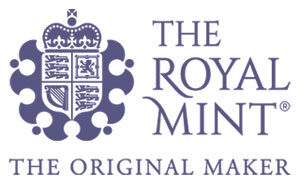 The Royal Mint and Heritage Crafts have announced four new bursaries for precious metal workers to preserve and champion traditional British craftsmanship skills, following the success of last year’s bursaries.
The Royal Mint and Heritage Crafts have announced four new bursaries for precious metal workers to preserve and champion traditional British craftsmanship skills, following the success of last year’s bursaries.
The four successful applicants of the 2024 bursary scheme will benefit from up to £4,000 in funding each, as well as one-to-one support from the staff at Heritage Crafts.
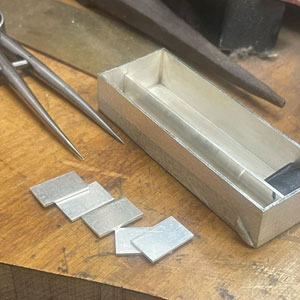
Silver box making by 2023 recipient Iona Hall
The new bursaries follow five previous bursaries awarded in 2023 to early-career practitioners of precious metal crafts. In August the successful recipients visited The Royal Mint’s manufacturing base in South Wales for a special tour and to meet key craftspeople. Last year’s bursary recipients included Iona Hall, who has been training in silver box making with renowned silversmith Ray Walton. The others were silver spinners Claire Mooney and Caius Bearder, silversmith Emma-Jane Rule, and jewellery maker Rosie Elwood.
The UK has an incredible range of heritage craft skills, from basketmaking and boatbuilding to musical instrument making and stained glass, along with some of the finest craftspeople in the world. But many of these skills are in the hands of individuals who have been unable to pass them on, often due to limited training opportunities and the increasing burdens put upon small businesses, leaving a number of traditional British crafts under threat.
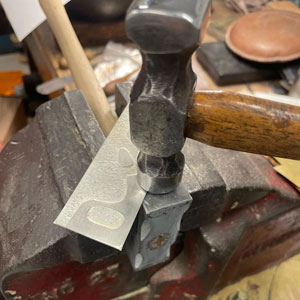
Silver box making by 2023 recipient Iona Hall
The 2023 edition of the Red List of Endangered Crafts produced by Heritage Crafts showed that 62 crafts were classified as critically endangered and a further 84 as endangered. But it’s not all bad news; some crafts, such as gilding, have seen a resurgence thanks to support from Heritage Crafts and a heightened appreciation of the handmade among the general public.
The Royal Mint’s expertise in precious metals spans over a thousand years. Known as the home of precious metals, The Royal Mint offers products including gold, silver and platinum commemorative coins, bars for investment, and a digital gold saving option, backed by metal held in their vault. Last year they announced plans to build a factory to recover precious metals from electronic waste. Recovered precious metal is being used to create beautiful jewellery pieces in their latest business venture, 886 by The Royal Mint.
Anne Jessopp, CEO of The Royal Mint, said:
“The Royal Mint is an exemplar of British craftsmanship, and we believe we have a duty to promote, protect and celebrate British craftsmanship, which is why I am extremely proud to support a second year of precious metal bursaries in partnership with Heritage Crafts. Following the success of the inaugural bursaries, it’s been positive to see the successes of the winners and we’re delighted we could support their careers development both financially but also by learning from our master craftspeople here at The Royal Mint. I look forward to seeing what this year’s applicants plan to do with the new bursaries and what precious metals skills will be utilised.”
Iona Hall, one of the 2023 bursary recipients, said:
“I am so grateful for this bursary, which has helped my practice so much. Having my work seen and appreciated by organisations like Heritage Crafts and the Royal Mint made me feel so much more confident in my work and gave me a new drive. My skills have come leaps and bounds after undertaking my training, and my trainer has said that can see me improving and growing confidence. I have thoroughly enjoyed every part and I am so thankful you believed in my silver boxes!”
Jay Blades, Co-Chair of Heritage Crafts, said:
“We are delighted to launch the second year of bursaries in partnership with The Royal Mint. Their passion for the preservation of British craftsmanship aligns so well with our mission to safeguard these skills for the next generation. Based on the success of last year, we know that these bursaries will provide unique opportunities to precious metals craftspeople that would not previously have been possible.”
This is a part of an ongoing partnership between Heritage Crafts and The Royal Mint that also saw the presentation of the first ever Precious Metalworker of the Year Award in November, to watch dial enameller Sally Morrison from Glasgow, during a special reception at the College of St George, Windsor Castle, and featuring a trophy specially made by The Royal Mint team. In addition, the two organisations hosted a symposium of precious metal practitioners from across the UK at Somerset House in July 2023 to identify the issues facing the sector and what might be done to relieve them.
Click here for more information on how to apply for the bursaries (deadline 23 February 2024)








 Deadline: 24 May 2023, 5pm
Deadline: 24 May 2023, 5pm Heritage Crafts has received a National Lottery Heritage Fund grant of £158k to capitalise on the heightened interest in traditional craftsmanship in the UK. Made possible by money raised by National Lottery players, the two-year project will increase the charity’s capacity to support craft skills as a vital part of the UK’s heritage.
Heritage Crafts has received a National Lottery Heritage Fund grant of £158k to capitalise on the heightened interest in traditional craftsmanship in the UK. Made possible by money raised by National Lottery players, the two-year project will increase the charity’s capacity to support craft skills as a vital part of the UK’s heritage. As Co-Chair of Heritage Crafts, the UK charity set up to support traditional crafts skills, Jay Blades MBE is leading a new initiative to bring cricket ball making back to the UK.
As Co-Chair of Heritage Crafts, the UK charity set up to support traditional crafts skills, Jay Blades MBE is leading a new initiative to bring cricket ball making back to the UK.
 Adoption of the Convention will open the way to increased monitoring of the UK’s intangible cultural heritage, including practices that have come here through migrant and diaspora communities, and better safeguarding of the most at-risk examples.
Adoption of the Convention will open the way to increased monitoring of the UK’s intangible cultural heritage, including practices that have come here through migrant and diaspora communities, and better safeguarding of the most at-risk examples. There will be no single government or organisation responsible for implementation across the UK, so open dialogue and discussion to ensure a diversity of voices and views will be fundamental. This is in line with the underlying principles of the Convention that implementation is community based, inclusive and respectful, open and engaged.
There will be no single government or organisation responsible for implementation across the UK, so open dialogue and discussion to ensure a diversity of voices and views will be fundamental. This is in line with the underlying principles of the Convention that implementation is community based, inclusive and respectful, open and engaged. The Royal Mint and Heritage Crafts have announced four new bursaries for precious metal workers to preserve and champion traditional British craftsmanship skills, following the success of last year’s bursaries.
The Royal Mint and Heritage Crafts have announced four new bursaries for precious metal workers to preserve and champion traditional British craftsmanship skills, following the success of last year’s bursaries.


